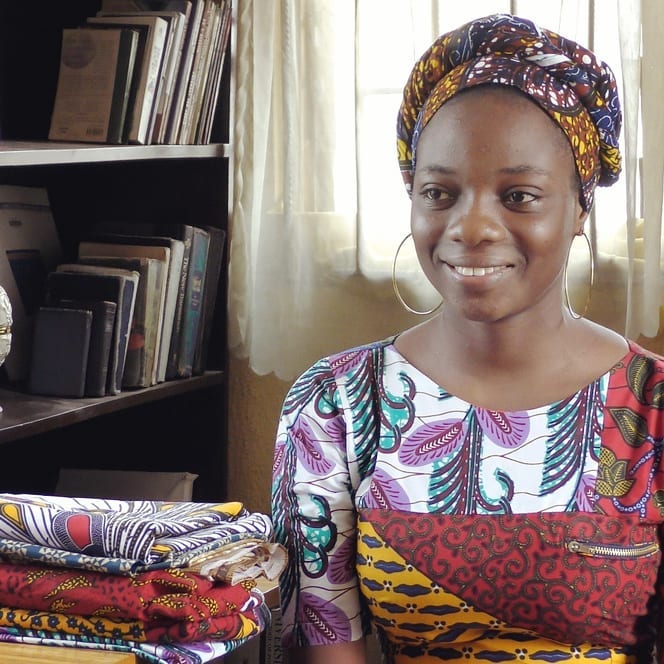Estimated reading time: 8 minutes
For a continent of over 1.4 billion people, amazingly existing mainstream documentations portray Africa to have had a relatively small role in the history of the world. You might have to dig into non-mainstream content to actually learn what role African has played in our human history. In this article on development in Africa, we want to explore our thought process in regards to a vision and strategy for Africa. However we explore from the perspective of small and medium sized enterprises as well as an African strategy for Europe.
The Eras, The commerce & the People
To understand the development in Africa you need to study through the diverse Eras, from the stone age to the digital age. From the development around the Trans-sahara trade to the contribution of the African kingdoms to world commerce. Africa saw a massive cloth production industry around the 16th century as well as a talented crafts sector. Not to mention the human rights and freedom struggle of people like Nelson Mandala, pan Africanist like Tanzania’s Julius Nyerere. Or Thomas Sankara and Kwame Nkruma to artist and authors like Nobel prize laureate Wole Soyinka. These development in Africa are just a few examples cited.
History and today teaches us that we need a vision for development in Africa to be real
Joadre
We need a collective vision for development in Africa to be real
However, it is important not to get carried away with these achievements or think that everything is perfect on this continent today. Given the historic experience and the current conditions in Nigeria as Africa’s most populous nation, it becomes necessary to think of a new strategy towards other continents. Let us start with Europe and hope that our collective thought process will flow towards the other major continents – Asia and North America, that are strongly entangled with Africa.
To ignite our thinking, let’s ponder on this question – What is Africa’s vision? Is there one? This is the very first question that we all as Africans both collectively and individually need to find answers to and tentatively agree on one collectively. It will be difficult though to embark on this process if we allow external influence sto instigate internal conflicts.
The past and fallen vision that does not serve Africa!
Over the centuries, the African population has been strategically pushed towards the role of world’s natural resource supplier and end product consumer. This vision was held alive through the transatlantic slavetrade to the colonial times. But even after the colonial times, new nation states were handed over with the same system and the systems operators who emerged from it. So the vision to remain the worlds cheap ressource supplier and consumer has since still been designated from the onstart and then upheld till date.
In the midst of this world-order-model, other continents have had the privilege to gather inspiration (Ideas), develop expertise (Develop) and build capital (Grow) to develop in their own chosen direction. So where do we want to be as a continent? Is the vision self sustainability? Because that would be the first recommendation we would embrace as an SME platform. Allow us to explore Self-sustainability in Africa as a vision for development in Africa and as a strong strategy (intention) for partnership with Europe.
What does self-sustainability mean for development in Africa?
First of all, being self sustainable as a continent does not imply excluding the continent from the rest of the world. Nor does it also not imply restrictive global politics. It simply means that the agenda by all (the 54 African nation states, the hundreds of regional governments, the civil administrations, the thousands of medium/large enterprise located in the continent, the millions of MSME and every African in the contingent and in the diaspora) is channelled towards creating an ecosystem that can uphold itself from within. In everyday terms, whatever Africa requires to be able to create a viable and just society, can be delivered from within Africa. Be it its education, its health, its justice, its spirituality, its trade, its production, its raw materials, its labour, its security, its digital technology, its defence and more. Is this possible?
Vision: A Self sustainable Africa!
How do we start this kind of development in Africa?
Let us start the development in Africa with authentic Education. What if we could, instead of just producing more students and graduates based on educational curriculum that does not serve the continent, we could reorganise and redesign education to better prepare young Africans for the equity market and labour market. We say equity market because, the current ideology of preparing youths from the labour market is a foreign concept that only serves those who rule the market.
What if it was status quo that young Africans be encouraged to own, build their ideas, develop their own trade systems, start their own factories, be the creative inventors they were meant to be rather than remain groomed to sell their time as labour? What if African youths could all become entrepreneurs interconnected, serving one another and creating the strongest decentralised true free trade that ever existed. To free trade, we would debate in another blog. We want to be part of the facilitators for this new kind of education in Africa.
Africa’s number 1 strategy for Europe – Authentic Education
Authentic Education is strategy number 1, after we can agree on the common vision of self sustainability which is step 1. If we can agree on this, they step 2 is to introduce the development of the African self sustainability idea into the to-be developed authentic educational system. For this idea, great minds have to come together from different African countries to define what self sustainability actually means for their country and regions.
Is processing your own raw materials the gateway to self reliance? Is diversifying your agricultural sector the key strategy? Is reversing brain-drain the way to go? Is a common renegociation on foreign investment the first step? Is mobilising tradition to the forefront the key factor? What does self sustainability mean for each region and how can these individual specifics interconnect to a common continental strategy? These thought process is not directed to top-level politics for now, but to the grassroot.
A justified line of thinking from the schooled
Now many schooled Africans would suggest domesticating european policies, integrating european best practices, green deals, practising true democracy and such line of thinking. A justified suggestion since the schooling was also eurocentric. However, why does it always seem so glittering on the other side? Why do we always tend to look outwards for solutions?
Have we lost all connection to our own soil? Have we lost the innate human ability to create “policies”, if we call it that, that serves the community? It seems then we have! Except “true democracy” is connected to a check and balance system rooted in African traditions, it cannot work as democracy. Is it not questionable to identify as true democracy if it is foreign to those that are democratised?
Strategy 2- domesticating European policies!
Now, let’s actually go this route to truly work towards domesticating. But before that, we have to do our homework, right? What is European history? How did these policies come about and why? Whom do these policies serve? Can we talk about human rights, when children are working in Congolese mines to get the cobalt for the green technology? Whose world is it that these policies protect? Europe today is emerging from generations that either were at war, or their grandparents survived the war. There was a strong need for a European strategy to foster some amount of rejuvenation and that requires peace and healing. The healing is still yet ahead.
Now Africa has, in the parallel time, emerged from colonial times. So there is the need to create strategies that foster freedom. As you see, the objectives – rejuvenate and freedom, are not the same. How then do we domesticate European policies? To try, means to truly understand the history and impact of the policies. We would then have to find out if the policies in any way apply to development in Africa. If it applies, it has to be viewed also from the lens of Africa being made up of thousands of ethics tribes. And yes this diversity is strength. It does not in any way divide, except we choose to make that the story.
At the end, the development in Africa requires, African Terms & condition
Think equity. When Africa finds natural resources and the world wants it, it then becomes her duty to learn how to process this within the content and sell the world the finished product rather than the raw material. When Africa finds a product that is essential to her population, she must learn how to manufacture them on ground. When Africa finds products or services that is an inevitable import, she must set the terms in the free market, just like the kings of the African kingdom did during the 15th century.
As iron became in higher demand and European traders wanted to import iron bars from Europe, the then African kings set the specific measurements for the iron bars to be allowed as imports from Europe to Africa. These measurement specifics were strictly controlled contrary to today’s policy implementation. For the technological age, the same applies. If you want to sell electronics in Nigeria, you must produce the electronics in Nigeria! For communication, the same applies – our stories, we tell, our stories, we sell. For social media, the same applies – our network, we create. Ownership or equity opens up partnership with other players from other continents. Experts from foreign lands as well as African diasporas should be engaged in this process.
The motto is – if it cannot be created on ground, do not use it! It sounds controversial, but with this discipline, we might come close to self sustainability soon. Share your thoughts as we want to have this debate with you. To share your thoughts, kindly write us a message using our contact form.
Join the community as we develop a grassroot strategy together
Still with the intention to provide more tools for you, we created our tailored all-in-one app to offer up-to-date knowledge, provide exposure for social entrepreneurs and offer coaching services. Get the app (Android version) here and for IOS users, a webapp version and IOS version is on it’s way, sign up for our newsletter here to know when its out and get the consistent ressources via email. If you need templates to develop your ideas, you can check our Joadre Tools. If you want to contact us, use our contact form or consult us through the app.
Thank you for reading to the end.
Cheers




